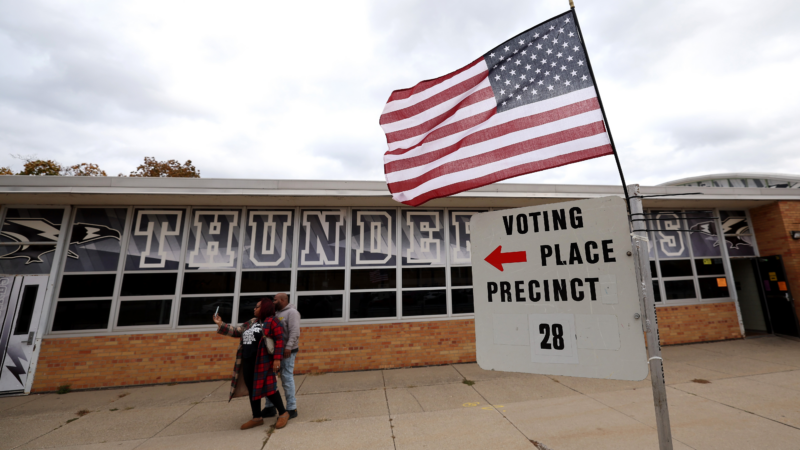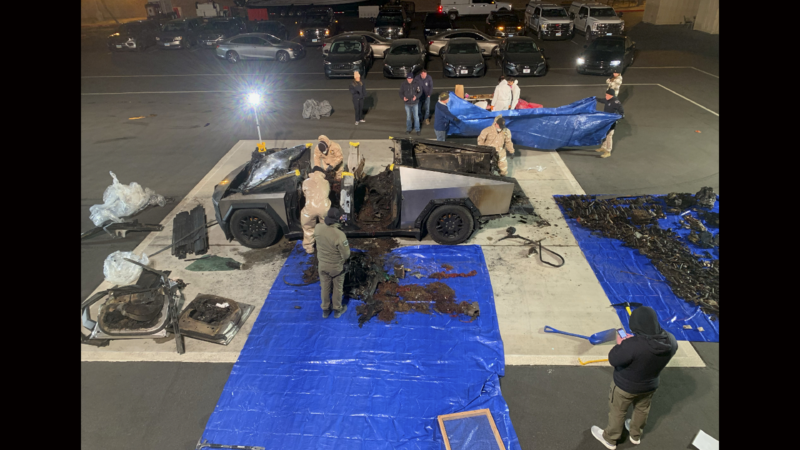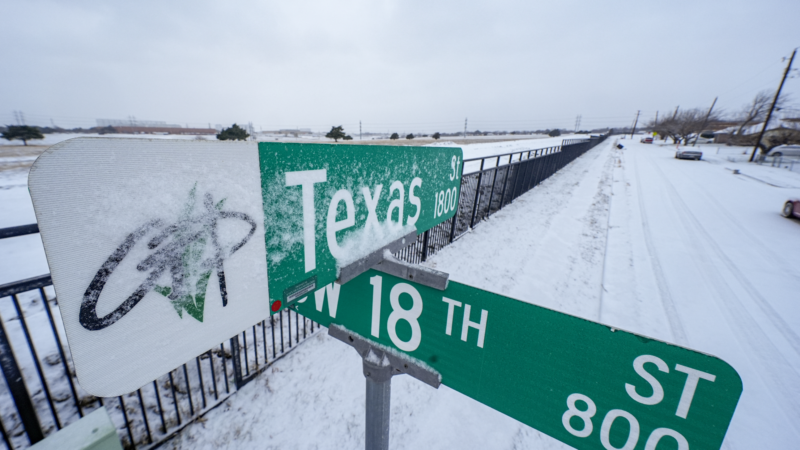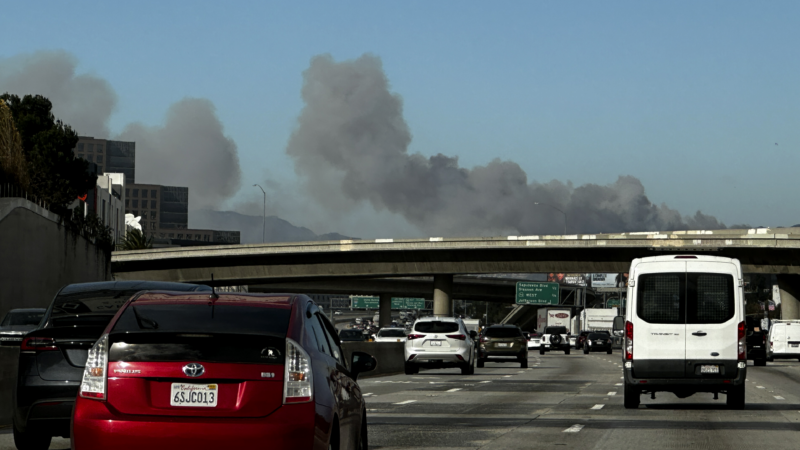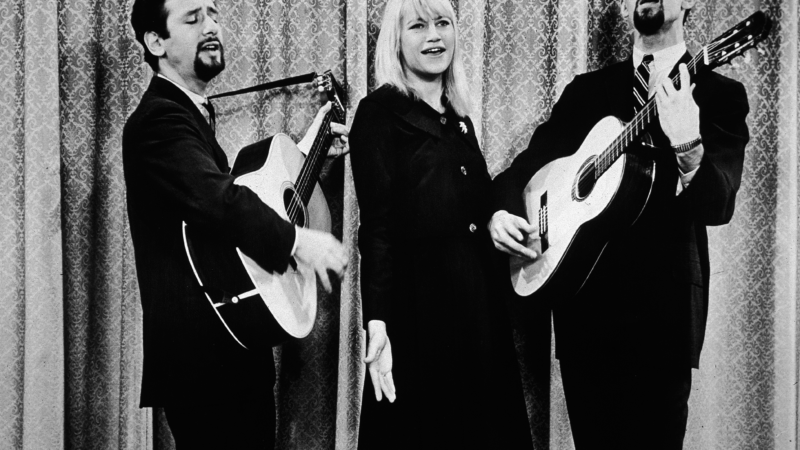Election confidence among Republicans surges after Trump’s win, a new poll finds
New data shows that the vast majority of Americans felt this year’s general election was administered well, a stark contrast to perceptions in 2020 and a reflection of how Republican voters specifically have come around on election security in a year when their preferred presidential candidate won.
Almost 9 in 10 U.S. voters felt the November election was run very well or somewhat well, according to data out Wednesday from the Pew Research Center, which surveyed people’s opinions starting a week after voting ended.
That number is more than 30 percentage points higher than it was at a similar point in 2020. The increase in voting confidence was driven exclusively by Republican voters.

In November 2020, as then-President Donald Trump and his campaign advisers were spreading lies about voting and election workers, just a fifth of people who said they voted for Trump also said they felt the election was administered well. This year, 93% of people who voted for Trump approved of how the election was run.
“It goes back to who had the microphone in 2020 and 2021,” said Carly Koppes, a Republican county clerk in Weld County, Co. “When we have the candidate and the top people that are respected within the two parties not engaging and not amplifying [election lies], that’s where we see the difference.”
This year, Trump spread baseless election cheating claims up until Election Day, but those stopped when the results became clear.
Election workers like Koppes are quick to note the two presidential elections were actually very similar from an administration perspective. The 2020 election featured slightly more mail voting, as many states expanded access options in response to the COVID-19 pandemic and concerns about the safety of in-person voting, but neither election featured any widespread issues.
The biggest change at the administrative level, Koppes said, was that election officials were more proactive this time around in communicating with the public and the media on security measures they had in place.
“We just were able to really move from a defensive spot that we were kind of in, in 2020 and 2021, and then really started to be able to move into a more offensive spot,” Koppes said.
Speaking at his state’s recent election certification, Arizona Secretary of State Adrian Fontes, a Democrat, noted how different the perceptions of the two presidential races were, despite no major practical changes.
“Given the fact that Arizona has essentially the same elections folks, running under the same elections rules, with the same elections systems, and we seem to have done a pretty doggone good job this time around … I think the age of election denialism is, for all intents and purposes, dead,” he said.
The Pew research showed signs of skepticism under the surface, however. A narrow majority of Trump voters said they were not confident that ineligible voters were prevented from casting ballots this election, for instance.
Still, Trump voters had even more confidence in this year’s elections process than people who voted for Vice President Harris. That’s not abnormal historically, as there has traditionally been what’s known as a “winner’s effect” in which voters whose candidate won have more confidence in the process. But considering Trump spent all year denigrating the nation’s election security, the swing in confidence is notable.
“The GOP numbers are almost irrational exuberance,” Paul Gronke, an election administration expert at Reed College, wrote in an email. “The longer record of confidence has shown some winners / losers effect, but nothing like was evident in 2020. … We simply never witnessed until 2020 a candidate and political organization so widely spreading mistrust. It took the ‘loser[‘s] regret’ effect and supercharged it.”
The near-universal confidence in this year’s elections has also led to a quieter certification period than many voting officials were preparing for.
But Koppes, in Colorado, noted that there has still been some conspiracy theorizing about the election among the fringe-left, and that for some on the right, election denial has become a career. So lies about voting almost certainly haven’t disappeared completely.
“It’s just until the next election,” Koppes said. “These are the new snake oil salesmen. They’re going to take any opportunity, for any tiny mistake or big mistake that happens, and continue pounding this drum for as long as they continue to be able to line their pockets.”
Man who exploded Cybertruck in Las Vegas used ChatGPT in planning, police say
The highly decorated soldier who exploded a Tesla Cybertruck outside the Trump hotel in Las Vegas used generative AI including ChatGPT to help plan the attack, Las Vegas police said Tuesday.
Wild weather brings snow to the South and Santa Ana winds to the West
As the South prepped for snow and more cold starting Wednesday, residents in Southern California faced off with hurricane-strength winds.
What to know about Trump and his keen interest in Greenland
President-elect Donald Trump has said multiple times that the U.S. should buy Greenland, an autonomous territory of Denmark. The sparsely populated island is geopolitically important and mineral-rich.
There’s great TV coming in January, from ‘Severance’ Season 2 to a Jerry Springer doc
There is a lot of TV on deck in the new year – including multiple medical dramas, a violent Netflix drama about Utah settlers in the 1850s, plus, cop shows, Westerns and documentaries.
Life-threatening windstorm triggers wildfire in Southern California
Southern California hasn't seen significant rainfall since last April, and a pileup of dry fuel in combination with the winds has the region on edge. A mandatory evacuation order was issued for the Palisades.
Peter Yarrow of the folk trio Peter, Paul and Mary has died at 86
Yarrow wrote or co-wrote some of the group's biggest 1960s hits, including "Puff, the Magic Dragon" and "Day Is Done."
